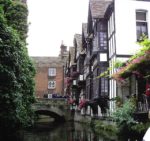
Pandora
This is a little bit of a deviation from the usual subject matter of genealogy here. But in the aftermath of the American Election, I felt the need to put pen to paper and post it somewhere. However, it does have a link to history – in that we don’t want to repeat it. So – here it is:
I have never thought of myself as a particularly political person, and I admit that I do not always understand political systems and the nitty gritty of party policies. I don’t know everything, and I don’t pretend to. But I do know about integrity, decency, compassion and love, and when I see any politician or party ignoring or opposing these basic human essentials, then I usually grumble and sign petitions and vote and perhaps have the occasional political discussion with like-minded friends, but on the whole I don’t put my head above the parapet, and usually am just happy to get on with my own life and hope that things will get better.
Then along comes 2016.
The whole strange grimy mess of this year appears to have started on the day that David Bowie left the planet. A whole host of beloved celebrities followed him, and following that we had Brexit, and the long drawn out terror of the American Election. It really did feel to me as though Pandora’s Box had been opened, and all the evils of the world flown out. Did those celebrities know something we didn’t?
With Brexit and the American Election, suddenly, I’m a raging, ranting Ms. Angry Person, posting and sharing on social media, shocked and dismayed by the seemingly sudden upsurge of racism, homophobia, xenophobia, misogyny and stupidity that have gone hand in hand with the UK vote to leave the EU, and the election of Donald Trump as President of the United States (I still can’t believe I’m actually writing those words). I am not by any means saying that everyone who voted to leave the EU, or vote for Trump, is a racist or any of the above. However, one cannot help but notice that there is a deep correlation between racism and those particular votes.
I can fly off the handle at times; I will say what I feel at the time. On the morning of Brexit, and in the last few hours on the morning of Trump’s triumph, I posted some bleak and generally ‘pissed off’ posts.
It is easy to feel angry with the world when things do not go the way we feel it should.
But I am also a philosopher, and after stomping around and throwing my toys out of the pram, I tend to sit down and have a think about things, and being a positive optimist at heart, I like to pick out the silver lining. I like to try and work out what’s going on, and why. And what we can do about it.
To go back to Pandora’s Box, in the myth, when Pandora managed to close the box, what was left inside was Hope. There are several interpretations of why Hope was left – some of them pessimistic (i.e. Hope was left behind, therefore the world is hopeless) – and what was Hope doing amongst all the evils anyway? But there are some more optimistic readings, in the sense that Hope was left for the human. Let us in this instance go for the more optimistic reading.
If those liberal open-minded humanists among us can let go of all the anger and hurt many of us are feeling right now, we might be able to begin to see the positive sides of all this. Let’s calm down and review the situation. It is what it is. The worst has happened. What can we make of it all? What can we hope for?
Firstly, what we have seen this year is a huge protest both in the UK and the US – a kind of bloodless revolution, if you like. It’s a protest against the establishment, a protest from people who feel left out and unheard. Unfortunately, the only people who appear to have been listening are the kind of politicians who believe that a modern Fascism is the answer, and sadly, they have fed them more fear and discontentment, blaming the problem on immigrants, Muslims and other groups. The same thing happened in Germany in the 1930s – but then the problem, according to Hitler, was Jews.
Many of us may believe that they are misguided and misled by these right-wing politicians and tabloid newspapers (don’t get me started on that one), and if we do, then perhaps it’s time the rest of us started listening, so that we can provide a better answer. In a democratic country, we should all be listening.
And if we listen, we then have to start to understand the reasons behind what they think. This is a wake-up call for the rest of us. If, instead of reacting with anger and despair, we approached the problem with compassion and understanding, we might go some way to heal divisions. It seems to be that large sections of our society are not quite ready to be global citizens, to embrace other cultures or come to terms with changes they see as elitist, damaging or irrelevant in their world.
It’s as if someone somewhere has put the brakes on. We thought we were going one way, towards a more unified and tolerant world, but there are more people than we thought that don’t want to go that way, and they are currently calling the shots. They have stopped the train.
The main cause of this revolution is fear – and a fear that has been fuelled by the likes of the Farages, Trumps and Daily Mails of this world. If we do not address this fear through compassionate listening, a more intelligent media and education, then this train is not going to get started again for a long time. Being angry and ranting on social media does not change anything, and generally creates more division. I’ve seen the slanging matches, and they’re not pretty. Nobody comes out looking good.
Something far more profound and long-term must be put in place. Saying that of course is a lot easier than actually doing it. How, exactly, do we address the fear, anger and disillusionment that has created the rise of far-right politics in the UK, US and now possibly France? How do we address violent racism and hatred towards minority groups, without being heavy handed and/or patronising, and while the politicians in power seem to either be joining them, or at best, ignoring the problem?
So, to get to the Hope part. Some great things can come out of hard times. Perhaps, if we can be optimists, we can see the Brexit vote and the election of Trump as a wake-up call to change. It’s a bit like getting a severe pain, which makes you go to the doctor to see what’s wrong, and only by finding out the problem behind the pain can we then find out what the cure is. Though we probably shouldn’t leave it too long…
There are intelligent campaign groups, such asthe UK’s Hope not hate, and Global Justice Now, which give you the opportunity to take action in the world and your local community. Joining groups like this can make us feel less helpless in the face of growing divisions and prejudices. They also aim to educate and spread love and compassion. We can all feel better doing that.
Those writers, artists, musicians and filmmakers amongst us can use our art to express how we feel as well as educate. I feel that perhaps new protest movements, such as there was in the 60s, are about to grow again. I’d feel proud to be part of that, because I was a little too young for the first one.
If I can go back to the comparison with Hitler’s Germany again. In the 1930s much of the world ignored what was going on hoping it would go away, or didn’t know, because not enough people were talking about it. This lack of action against a dangerous state led to WWII. In today’s world things are thankfully different. I believe there are enough recognising what is happening, and hopefully it is enough to stop it escalating to similar consequences.
So, if 2016 was the year the alarm went off, perhaps 2017 will be the year we get up and start going to work to get that train moving again.
And as for Pandora’s Box. Poor Pandora. She wasn’t a bad girl – she was just curious, like all humans. Perhaps it is human nature to shake the world up a bit just to see what will happen. Well, the world is certainly shaken right now – let’s see what happens. Perhaps – just perhaps – it may not be as bad as we thought. Let’s Hope so.
Save
Save
Save
Save
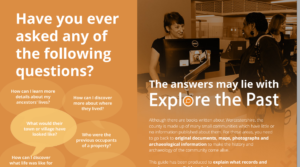 If you have Worcestershire ancestors, or are particularly interested in Worcestershire history or archaeology, then consider yourself lucky. The Worcestershire Archives (at The Hive ), have an excellent service, Explore the Past, to help you work out what documents you need and where to find them. Added to that, they have produced a very handy introduction to the sources held at the archives, also called Explore the Past.
If you have Worcestershire ancestors, or are particularly interested in Worcestershire history or archaeology, then consider yourself lucky. The Worcestershire Archives (at The Hive ), have an excellent service, Explore the Past, to help you work out what documents you need and where to find them. Added to that, they have produced a very handy introduction to the sources held at the archives, also called Explore the Past.

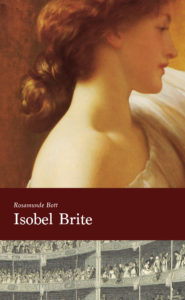
 Once upon a time, before the internet, when you had laboriously gone through the original parish registers at the local record office, and found your ancestor missing, your next port of call would be to look at the International Genealogical Index (IGI) on microfiche to see if you could find them nearby. Very often the County Record Offices only had the fiches for their own and nearby counties, but the IGI could be very useful if your missing ancestor had come from a neighbouring parish. If you found them on the IGI, then you would then look at the relevant parish to get the original record.
Once upon a time, before the internet, when you had laboriously gone through the original parish registers at the local record office, and found your ancestor missing, your next port of call would be to look at the International Genealogical Index (IGI) on microfiche to see if you could find them nearby. Very often the County Record Offices only had the fiches for their own and nearby counties, but the IGI could be very useful if your missing ancestor had come from a neighbouring parish. If you found them on the IGI, then you would then look at the relevant parish to get the original record.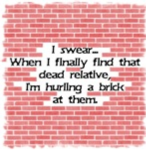 This is a problem that is all too common when you have an ancestor with a common name. Unless you have extra information that might help you to pinpoint your ancestor out of a long list of possibilities, this can be really infuriating. One of those ‘John Smith’s is your great-grandfather, but you have no way of knowing which one he is! The problem is even more complicated if you have an ancestor with a name that can be easily shortened or changed (think how many variations of Elizabeth there are: Betty, Betsy, Lizzie, Liz, Eliza….)
This is a problem that is all too common when you have an ancestor with a common name. Unless you have extra information that might help you to pinpoint your ancestor out of a long list of possibilities, this can be really infuriating. One of those ‘John Smith’s is your great-grandfather, but you have no way of knowing which one he is! The problem is even more complicated if you have an ancestor with a name that can be easily shortened or changed (think how many variations of Elizabeth there are: Betty, Betsy, Lizzie, Liz, Eliza….)

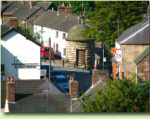
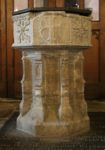 One of the most frustrating brick walls in genealogy is when you cannot find an ancestor in the local baptism registers, and they have died before the 1851 census when specific places of birth were given. You might even have found that in the 1841 census they are described as ‘not born in county’, which is about as helpful as a chocolate teapot. This is especially difficult when the name is a common one.
One of the most frustrating brick walls in genealogy is when you cannot find an ancestor in the local baptism registers, and they have died before the 1851 census when specific places of birth were given. You might even have found that in the 1841 census they are described as ‘not born in county’, which is about as helpful as a chocolate teapot. This is especially difficult when the name is a common one.

